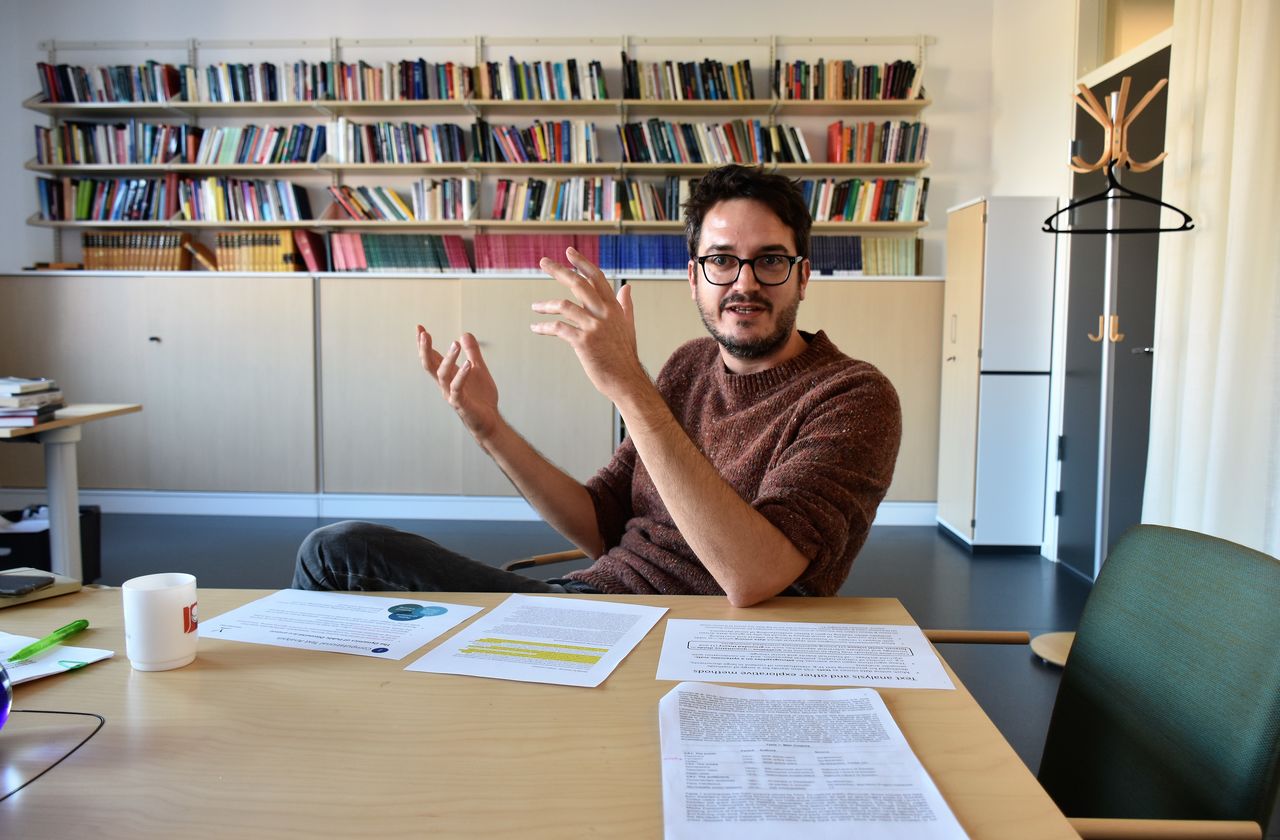 "Using freely written text liberates the researcher", says Marc Keuschnigg. Photo credit: Mikael Sönne
"Using freely written text liberates the researcher", says Marc Keuschnigg. Photo credit: Mikael Sönne
The Swedish Research Council has awarded 17,2 million SEK for the research environment “Mining for meaning”, that over a period of six years involves six Swedish and European researchers along with at least two PhD-students. Marc Keuschnigg, associate professor at IAS, will be the project leader.
Congratulations on receiving this big grant!
- Thank you very much. We are very pleased and excited about the generous grant from the Swedish Research Council. We had high hopes, but we also know that the council only approves about ten percent of the applications.
Tell us a little about this new research environment!
- We will adapt tools from computational text analysis to move sociological analyses of textual data beyond the mostly small-scale applications that currently still dominate the field. We will work with large corpora of texts available from online forums, media outlets, parliamentary speeches and press releases. We interpret these constantly updated corpora as social sensors, and will analyse over time how the public, the media and the political sphere talk about current social developments and how public sentiment, agenda setting, and political framing of societal issues develop over time.
Marc Keuschnigg at the rooftop of the IAS building.
- We will especially focus on immigration and want to learn about recent shifts in public opinion towards immigration. What has been called the refugee crisis of 2015 and the sudden shifts in public discourse associated with these events make a dramatic example of dynamics our research will try to understand.
What is known in this area today and what will be new?
- In political science and in communication studies there is a long tradition of studies in political agenda setting and framing. What is new in our research is that we combine media content and text derived from different domains of society – the media, the political and the public sphere - to explore how these spheres interact in bringing about shared understandings of immigration.
- We also want to learn about the pacemakers of public discourse. What is starting shifts in public opinion; is it bubbling up from the general population, is it influential media outlets or is it the political parties with their framing of events who change the public discourse?
What do you think? Do you have any theory there?
- I could speculate, but we would not need 17 million if we knew the answer already. . . What I can say is that traditional research, mainly in political science, commonly perceives the media and political parties as the main pacemakers. I think that the public also plays an important role. But this is an issue that we will examine.
Are there some areas that you are particularly curious about?
- Well, part of my passion for this project derives from the great potential of new computational tools to extend text analysis to a very grand scale. These tools are very promising for sociologists because they allow scalable ways of looking at what people feel, think and talk about. They allow us to go beyond survey data in measuring attitudes and expressed opinions. The problem with survey data is that it is usually derived from a sample of the population and that people often do not report their true feelings and at the same time are forced to obey to strict questionnaires.
Marc Keuschnigg at IAS.
- Using freely written text liberates the researcher in exploring the meaning-making and the shared understandings of current development within society. We want to make these new tools fruitful for sociological research.
In your application you are writing about these new methods for text analysis.
- Yes, what is so exiting about these methods is that I also hope they will help us to overcome the quantitative-qualitative divide in the social sciences. Right now, we have two camps who hardly interact with each other, they go to different conferences and publish in different journals. I think we can learn a lot from each other, and these tools may help to bridge the divide. In this project, for example, researchers from both camps are participating.
In that sense this project can be important for sociology as a whole?
- Ideally, yes. We hope to contribute to this growing together of the two camps.
